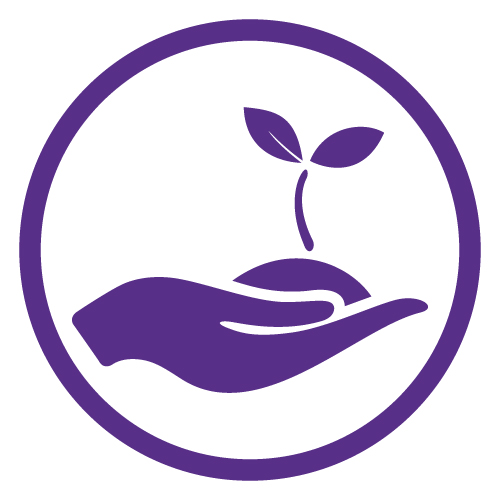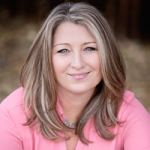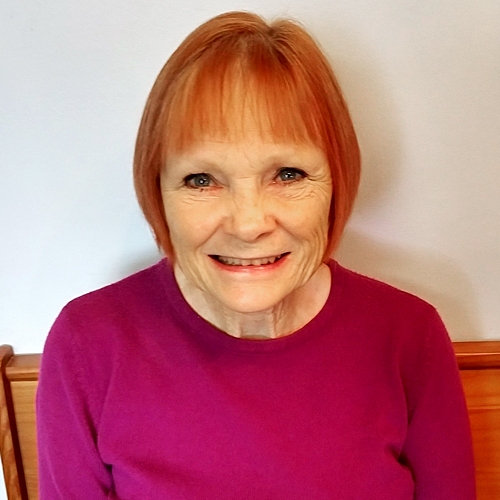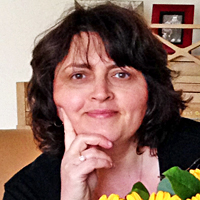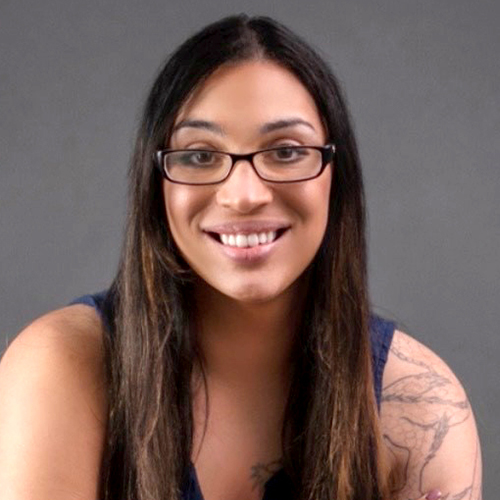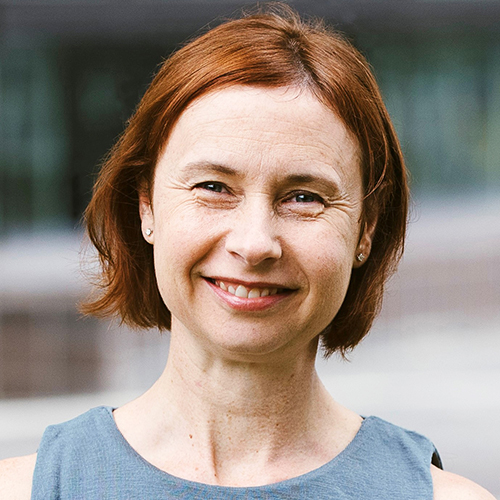 Lactation & Breastfeeding Online Course(s) & Continuing Education
Lactation & Breastfeeding Online Course(s) & Continuing Education
Access the latest clinical skills and research for Lactation & Breastfeeding for professional training. These Lactation & Breastfeeding online courses provide practice-changing skills and valuable perspectives from leading global experts. This Lactation & Breastfeeding education has been accredited for a variety of CEUs / CERPs and can be accessed on-demand, at your own pace.
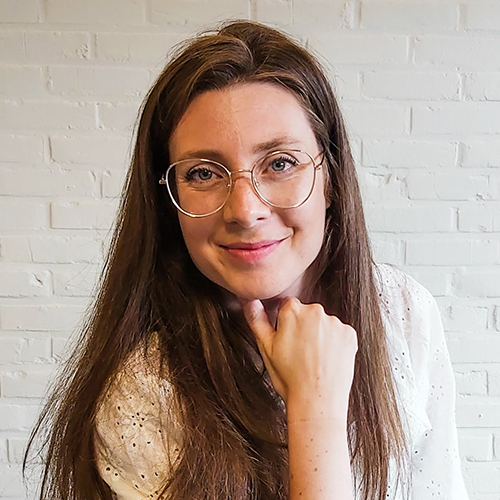

Rolinde obtained a PhD in applied biological sciences at Ghent University in 2011 and authored several peer reviewed articles. After a career as a scientist, she started her private practice “Op de groei”, where she works as a pediatric dietitian and lactation consultant. Rolinde has a special interest in allergies, starting solids and picky eating and is the author of several books on cow’s milk allergy and feeding in the first years of life. Rolinde is known for the critical eye with which she translates science into practical information.
Cow’s milk protein allergy is one of the most common food allergies in young children, diagnosed in 1/200 breastfed infants. Both underdiagnosis and overdiagnosis can have negative implications for mother and child, underlining the importance of a timely and correct diagnosis. An adequate management of a cow’s milk protein allergy should not only focus on the correct elimination of cow’s milk proteins, but also on practical advice on adaption of family meals and nutritional adequacy for the breastfeeding mother and infant. Research shows that 85% of children develop tolerance to cow’s milk proteins, on average between the age of one and three years old. This presentation will include when and how reintroduction with cow’s milk should occur to determine acquisition of tolerance in the breastfed infant. Finally, we will discuss whether the development of a cow’s milk protein allergy can be prevented and which factors raise the risk of developing a cow’s milk protein allergy.
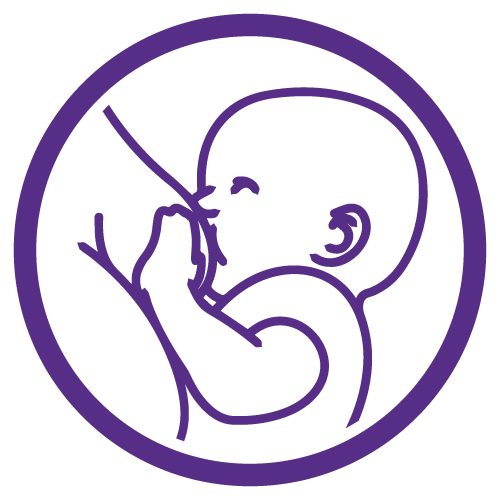
View Details / Enroll
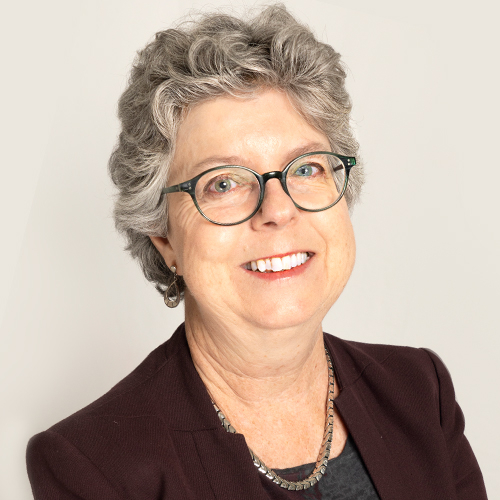
Taking a Lactation History: From Pregnancy to Postpartum and Beyond

Professor Lisa Amir is a general practitioner and has been an International Board Certified Lactation Consultant since 1989. She is the author of over 120 peer-reviewed articles on breastfeeding. She works in breastfeeding medicine at The Royal Women’s Hospital in Melbourne, Australia. She is a Principal Research Fellow at Judith Lumley Centre, La Trobe University and is the Editor-in-Chief of the open access journal, International Breastfeeding Journal.
Topic: Ethical Issues in the Use of Medications During Lactation - [View Abstract]
Topic: Taking a Lactation History: From Pregnancy to Postpartum and Beyond - [View Abstract]
Topic: Urban Design Solutions to Support Breastfeeding in Public - [View Abstract]
In this talk, Dr Lisa Amir explains how to take a history in a breastfeeding consultation. Developing rapport, listening and asking the right questions are essential to helping women experiencing challenges with breastfeeding. This talk will consider taking a history from clients before and during pregnancy, as well as early postpartum and later in their breastfeeding journey.
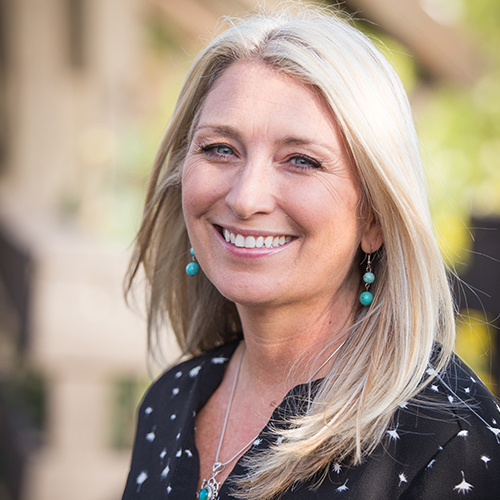
Talk To Me: How Breastmilk Acts as a Communication and Gene Expression Tool Between Mother and Child

Laurel Wilson, IBCLC, CLE, CCCE, CLD is a TEDx and international speaker, author, pregnancy and lactation expert, and consultant. She served as the Executive Director of Lactation Programs for CAPPA, the Childbirth and Postpartum Professional Association for 16 years and now is on the Senior Advisor Board. She served on the Board of Directors for the United States Breastfeeding Committee from 2016-2019. She also is on the Advisory Board for InJoy Health. She owns MotherJourney, focusing on training perinatal professionals on integrative and holistic information regarding pregnancy, childbirth, and breastfeeding. She has her degree in Maternal Child Health: Lactation Consulting and is an internationally board certified lactation consultant. As the co-author of two books, The Attachment Pregnancy and The Greatest Pregnancy Ever, original Editor of the CAPPA Lactation Educator Manual, and contributing author to Round the Circle: Doulas Talk About Themselves, she loves to blend today’s recent scientific findings with the mind/body/spirit wisdom. Laurel has been joyfully married to her husband for nearly three decades and has two wonderful grown sons, whose difficult births led her on a path towards helping emerging families create positive experiences. She believes that the journey into parenthood is a life-changing rite of passage that should be deeply honored and celebrated.
Topic: Epigenetics and Breastfeeding: The Potential Longterm Impact of Breastmilk - [View Abstract]
Topic: Hold the Phone! Diet Does Matter During Breastfeeding: Implication of Diet on Fatty Acid Composition and Other Nutrients - [View Abstract]
Topic: Postpartum Mood Disorders, Breastfeeding and the Epigenetic Links from Past Into Future - [View Abstract]
Topic: Talk To Me: How Breastmilk Acts as a Communication and Gene Expression Tool Between Mother and Child - [View Abstract]
Topic: The Milk Sharing Conundrum - The Grey Area Between Scope and Need - [View Abstract]
Topic: The Placenta and Breastmilk-Unraveling the Mysterious World of the Intelligent Organs that Protect our Babies - [View Abstract]
Topic: Understanding Zika and Lyme and Breastfeeding - [View Abstract]
Topic: Unraveling the Mysteries of Human Milk: The Fascinating Role of Neohormones, Epigenetics, the Microbiome and More! - [View Abstract]
Breastmilk has long been understood to be a pathway towards long-term health for both mother and child. The specific mechanisms for how this communication works has long been studied and today many researchers believe that messenger RNAs and stem cells contribute in many ways to appropriate developmental pathways for the baby and cause gene activation that promotes health for life. mRNA in breastmilk can also be influenced by the time of day and even the timing of the babies delivery, becoming adaptive for the baby’s unique needs. Not only do these messenger RNA communicate important genetic information to the baby via breastmilk, changes in the mothers body via mRNA occur during lactation responding to a new “mothering” focus during the period of lactation. This may impact the mother’s postpartum mental states, adaptation to stress, and changes in fatty acids. This presentation highlights some of the fascinating studies that demonstrate the myriad of ways that stem cells and mRNA during lactation become the ultimate communicators, affecting change for years to come.
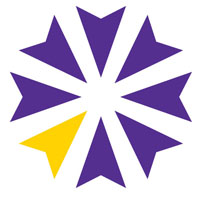
View Details / Enroll
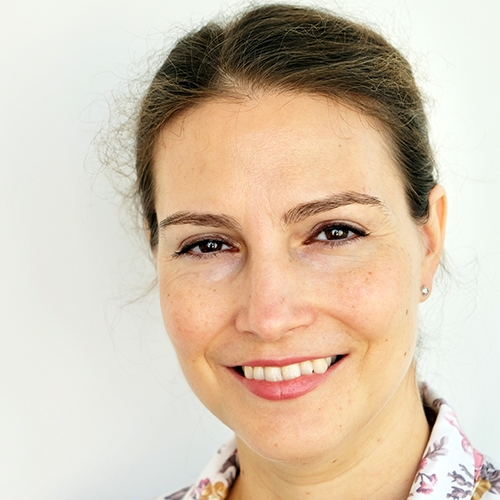
Talking to Babies: Basic Communication Skills for Lactating Parents and Healthcare Specialists

Dr. Smaranda Nay is a Family Doctor, an IBCLC, a Personal Development Counselor and a mother. She has been studying Transactional Analysis psychotherapy since 2007 and is now in her second year of training to become a Somatic Experience therapist. She uses her knowledge to teach parents how to connect with their children and how to attune to their babies’ needs, both through individual counselling sessions and in classes. She is part of the Romanian Lactation Consultants Association and holds lactation education courses for future IBCLCs. She gives lactation counselling consults and holds breastfeeding and childcare courses.
She also holds personal development workshops for teenagers and adults, collaborating with non-formal education organizations and schools. She is particularly curious about the development of an attuned relationship between people and building intimacy and trust. Working with babies, she observes the parent-child connection and explores its potential in healing and growth, and how it impacts the future development of the individual. Working with teenagers and adults, she facilitates ways in which childhood disruptions can be healed in the present.
This is a presentation on how explaining things to babies of all ages, including newborns, can help solve difficult moments during lactation in the parent-baby relationship and lead to healthy parenting. Communication blocks happen frequently due to changes, events, and anxiety, and sometimes they can interfere with breastfeeding/chestfeeding. At least some of these blocks can be solved by communicating with the baby in an open, compassionate, and respectful way.
Lactation and healthcare professionals will learn how to approach such situations, what questions to ask and what suggestions to make to parents so they and their babies can overcome the situation. Lactation and healthcare professionals will also learn about different cases that I have encountered, how the method was applied and what were the results.
I deeply believe that the way we talk to babies, communicate with them and how we teach parents to do that is an essential part of our work. On the long term, it can make an important difference to how those babies are treated, respected, parented, educated, and raised and what kind of adults they will become.

View Details / Enroll

View Details / Enroll


Sejal is an International Board Certified Lactation Consultant (IBCLC) in private practice and an infant massage educator in Hillsboro, Oregon, USA. She combines her professional expertise with her personal instincts as a mother and a supportive team member.
She holds a Bachelors in Microbiology and Clinical Laboratory Science.
She also brings with her the following comprehensive toolkit: Certified Educator of Infant Massage, Formerly Certified in skin-to-skin care for full term infants from the United States Institute of Kangaroo Care Certified Provider of Innate Postpartum Care.
She has presented nationally and internationally for GOLD lactation, ILCA, community colleges, local lactation organizations.
As a lactation consultant, she believes that every individual needs to be educated about breast health, optimal infant feeding and how breastfeeding support is a basic human right and can impact world health globally.
She strives to help each family by continuing to learn all she can about breast health, breastfeeding ecology, breastfeeding movement and parent-infant connection using the neurobiological and infant mental health lens.
When she’s not with her clients, you can find her at home in Hillsboro, Oregon, USA, listening to bollywood music, hanging out with friends and spending time with her family.
Topic: Calm & Regulated: Rethinking Our Approach to Latch and Positioning - [View Abstract]
Topic: Teaching Infant Facial Massage to Parents to Support a Functional Latch - [View Abstract]
Background: The benefits of massage have been shown in many research studies. Massage relieves stress, pain and muscle tension. We expect to show that the same benefits can be achieved when facial massage is used to optimize a baby’s oral structures to support a functional latch.
Method: We hope to use facial massage as a tool for babies that do not have an optimal latch. Babies born with gestational constraints, traumatic birth, exposure to stress during pregnancy or babies with tethered oral tissues may benefit from a parent massaging their face. Attendees will have access to handouts and a video link and may use their own face to practice the facial massage strokes.
Results: Building strength by oral and facial muscles, relaxing tension in the jaw, the lips, the muscles around the lips, and muscles of facial expression may help optimize the latch and hence prevent nipple damage.
Conclusion: IBCLCs can have an extra tool in their toolkit to offer to new parents. Facial massage techniques to support a functional latch can increase a parent’s confidence in caring for their baby, while increasing the levels of oxytocin and thereby promoting parent-infant bond

View Details / Enroll
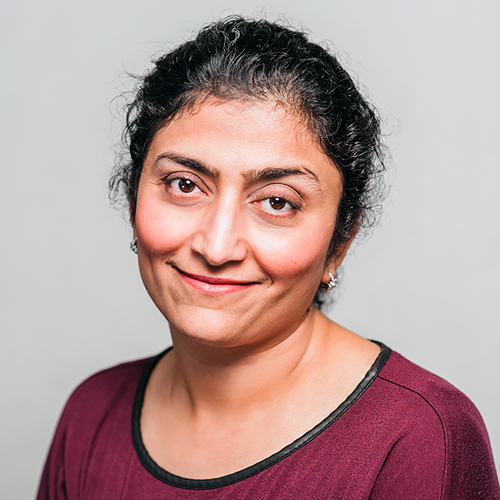
View Details / Enroll
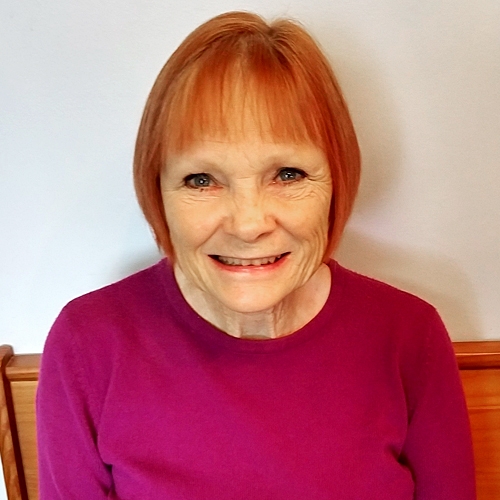

Nancy has been providing breastfeeding help and support for 40 years and has been a national speaker for 30. She has been a perinatal educator and consultant since the late 1970’s. Her second career is that of a Marriage and Family Therapist. Her passion is to explore the larger picture of the mother-baby dyad in the context of the breastfeeding relationship.
Topic: Teens and Breastfeeding - [View Abstract]
Current information on working with teen mothers includes issues such as body art, nutrition, grandmothers, and adolescent brain development. Strategies for connecting with and teaching these mothers will be addressed.

View Details / Enroll
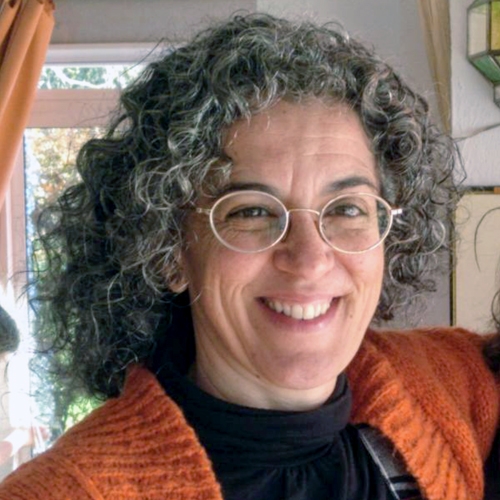
The Art and the Science: A Critical Look at the Physiology and Management of Mastitis

Carmela is a family medicine MD, bachelor´s degree in Public Health Education, and IBCLC since 2005. She is also a BFHI Evaluator and the co founder and past president of the Spanish Lactation Consultant Association (AECCLM). She works in a private Family Wellness Clinic, Raices, as person in charge of the lactation program, which includes two IBCLCs attending breastfeeding families and an extensive offer of breastfeeding training for health care professionals and breastfeeding peer counsellors. The team has trained over three thousand doctors, midwives and nurses from both the Spanish National Health Service and the private sector in Spain. She is a frequent lecturer at national conferences, and has also lectured internationally, both on-site and online. She is the author of several scientific papers on breast pain, mastitis and tongue tie. She is also the author of a breastfeeding/parenting book, “Amar con los Brazos Abiertos” (To Love with Open Arms). She is married to Carlos and they homeschool their four children.
Topic: Assessment and Management of Mastitis - [View Abstract]
Topic: Getting Milk Production off to a Good Start - [View Abstract]
Topic: Management of Chronic Breast Pain: Holistic Approach - [View Abstract]
Topic: The Art and the Science: A Critical Look at the Physiology and Management of Mastitis - [View Abstract]
Mastitis has been occurring for as long as breastfeeding itself. It is a very common difficulty in nursing women. For many decades, its diagnosis and management were considered to be straightforward. However, in the last decade new concepts have been put forward, such as dysbiosis, subacute mastitis, and the concept of the mastitis spectrum. In this talk, we will take a look at the scientific evidence (or lack thereof) for these terms and discuss their impact on day to day clinical management.

View Details / Enroll
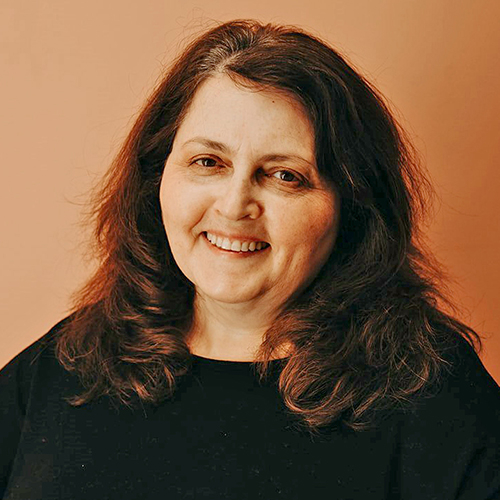
The Art of Therapeutic Breast Massage in Supporting Breastfeeding

Maya Bolman was born and raised in Minsk, Belarus. She was certified as IBCLC in 2001 and currently works as a lactation consultant at Senders Pediatrics and Breastfeeding Medicine of Northeast Ohio.
Maya is well known internationally for her work promoting hand expression and breast massage to health professionals and parents. She recognizes that teaching these basic tools helps empower them to work through breastfeeding challenges including engorgement, plugged ducts, separation from the infant, and milk supply concerns.
She has worked with Dr. Ann Witt to create an instructional video “The Basics of Breast Massage and Hand Expression” and conducts research on the effectiveness of Therapeutic Breast Massage in Lactation (TBML) both in the office and as a treatment at home for mothers.
Breast pain is one of the major causes of weaning. The likelihood of weaning increases the longer pain persists. Engorgement, plugged ducts, and mastitis are commonly associated with acute breast pain. Description of desired/achievable state: Therapeutic Breast Massage in Lactation (TBML) is one of the important measures to resolve pain quickly.
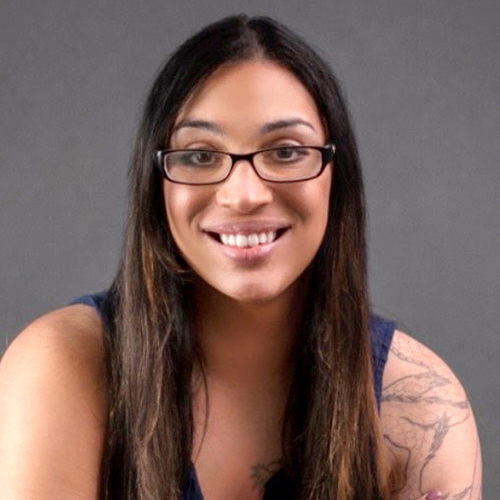

Shondra Mattos is an IBCLC, Entrepreneur & Speaker who delivers progressive, up-to-date lectures that challenge the current standard of Lactation Care. She is widely regarded as the go-to source for those looking for clear, understandable clinical knowledge.
In 2018, Shondra rebranded her lactation practice Mattos Lactation and provided location-independent lactation support to families across the country. In 2020 she founded Lactnerd LLC with the focus of helping healthcare providers gain knowledge while conquering the intimidation of learning the complex science of Lactation.
Through her companies- Lactnerd & Mattos Lactation - she provides tools, resources, education & mentoring to aspiring and established lactation professionals across the USA.
This presentation will cover skills & strategies of conducting assessments of oral dysfunction in a telehealth setting, a situation many Lactation providers were thrusted into due to Covid-19. Through real life examples of processes & strategies I use in my location-independent practice which specializes in oral dysfunction, the learner will gain practical insight to improve the quality of the virtual lactation visits they provide.
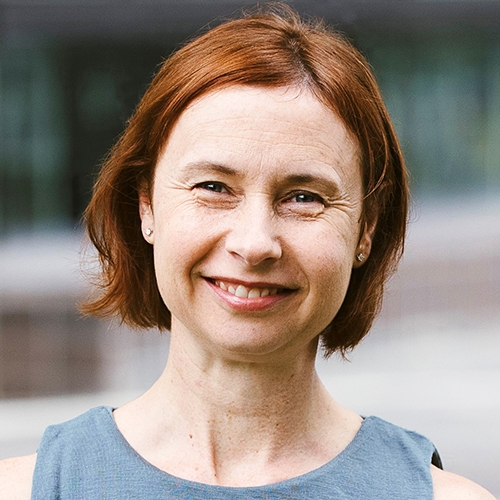

Wendy is a breast biologist at the University of Adelaide, Australia. Her research explores the biology of how the breast develops and functions to better understand how disease states occur, including lactation mastitis and breast cancer.
After postdoctoral research as an NHMRC CJ Martin Fellow at Albert Einstein College of Medicine in New York, USA, Wendy returned to Adelaide in 2005 and established the Breast Biology and Cancer Unit at the University of Adelaide. In 2011 she was appointed a National Breast Cancer Foundation Fellow and also The Hospital Research Foundation Associate Professor of Breast Cancer Research, which is her current appointment.
In 2016 Wendy won the Award for Excellence in Reproductive Biology Research from the Society for Reproductive Biology. Wendy’s research challenges old paradigms and explores new concepts in how the breast develops and functions to improve breast health across the life course.
The mammary gland is a unique tissue, common to all mammals, that undergoes the majority of development postnatally, particularly during puberty and pregnancy. During pregnancy, the mammary gland acquires the ability to make and secrete copious amounts of milk to provide essential nutrients and immunological protection to the newborn. The biological mechanisms that lead to milk synthesis and secretion are finely orchestrated as the composition, abundance and timing must meet the unique and specific needs of each mother-baby pair during this critical phase of infant development. This lecture will encompass the developmental mechanisms that enable the mammary gland to undergo lactation, the composition and secretion of breast milk, and a comparative analysis of the mammary gland between human and other mammalian species to better appreciate the remarkable functions of this unique tissue.

View Details / Enroll




